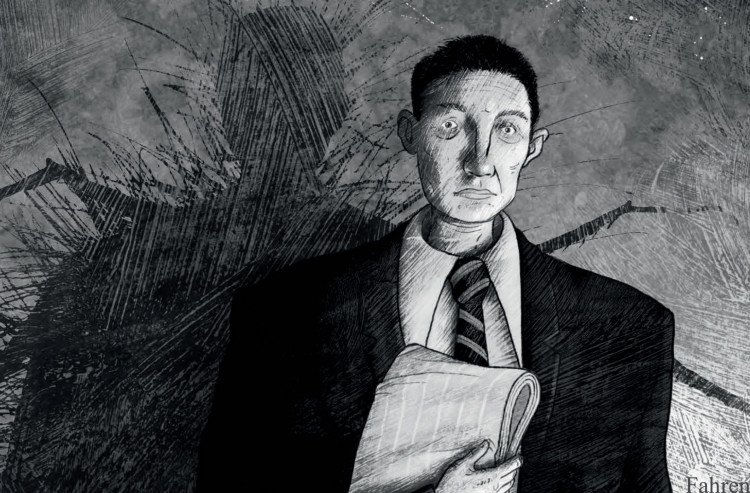Irony of Altruism: An analysis on The Metamorphosis
- Jackie Le
- Jun 9, 2023
- 4 min read
Franz Kafka’s novella, The Metamorphosis, revolves around a young traveling salesman, Gregor Samsa, who transforms into a large insect overnight. His metamorphosis distresses his mother, father, and his younger sister as he is the
main financial provider for the family. Gregor’s excessive generosity ultimately deprives his family from any self-sufficiency and results in their complete dependence on him. The family’s heavy reliance on Gregor creates a complex relationship as they feel both grateful for his help and resentful for their dependence and lack of freedom. However, once Gregor transforms into an insect, the family’s structure changes as he is no longer able to provide for the family or himself and relies on his younger sister, Grete, for support. Through Gregor’s relationship with his family, Kafka reveals the irony of altruism.
Often seen as the ultimate virtue, selflessness can potentially become destructive in relationships as it challenges the nature of giving and receiving. Throughout the story, there is not much that reveals Gregor’s own desires as an individual. Besides viewing Gregor as a provider, the only other personal attribute to his character is of a “picture which he had recently cut out of an illustrated magazine and put into a pretty gift frame. It showed a lady, with a fur cap on and a fur stole, sitting upright and holding out to the spectator a huge fur muff into which the whole of her forearm had vanished” (114). Gregor’s framed picture of a lady wearing fur from top to bottom reveals a longing for a different life he currently lives. Fur, often seen as a luxurious material, represents wealth and success while the woman wearing it symbolizes Gregor’s loneliness as he lacks a romantic companion. Gregor framing the picture suggests that these are his goals: to gain wealth and companionship, both of which he lacks due to dedicating his life to his family. The framed picture emphasizes Gregor’s excessive need to provide for his family, to the extent that he sacrifices his own life for theirs. He has given his life for his family and has not gained anything substantial in return.
The intensity of Gregor’s charitableness leaves his family embittered as “they had simply got used to it, both the family and Gregor; the money was gratefully accepted and gladly given, but there was no special uprush of warm feeling” (136). The more Gregor helps his family, the more they resent their dependence on him. To admit to being dependent often suggests inferiority and vulnerability, causing an imbalance of power between one another. This imbalance is amplified as traditionally, parents have more power than their children. Thus, Gregor’s family feels obliged to him rather than view him as their son. He has embodied an authoritative figure and as a result, he becomes isolated and detached from his family. Through Gregor’s relationship with his family, Kafka reveals the irony of selflessness as even family members begin to reject one another.
Being dependent on someone often results in less freedom, causing further tension in a relationship. After Gregor’s metamorphosis, he becomes fully dependent on Grete, just as she was on him. When Grete comes into Gregor’s room to serve him food, Gregor notes that “the very way she came in distressed him. Hardly was she in the room when she rushed to the window, without even taking time to shut the door… and as if she were almost suffocating tore the casements open with hasty fingers” (138). Gregor judges the way Grete enters his room, her movements, and how she leaves. Although Gregor does not necessarily express resentment toward Grete, his annoyance with an action as small as her entrance suggests he is beginning to experience the same bitterness his family felt when he was the main provider. Grete leaving the door open is symbolic of Gregor’s inability to separate himself from his family: there is no barrier between them now that he is dependent. The reversed relationship between Gregor and Grete further demonstrates the paradoxes of altruism.
Gregor’s sister also decides that moving furniture out of Gregor’s room will benefit him as “she had grown accustomed, and not without reason, to consider herself an expert in Gregor’s affairs as against her parents, and so her mother’s advice was now enough to make her determined on the removal not only of the chest and the writing desk, which had been her first intention, but of all the furniture except the indispensable sofa” (141). Without Gregor’s discretion, his sister decides what would be best for him. Grete’s false assumption reflects the same tendency that Gregor has in regard for what is best for his family. He selflessly provides everything for his family without evaluating what they really need. These assumptions become harmful as his selfless deeds are no longer out of necessity and obstruct any independence his family members have.
Kafka uses Gregor’s relationship with his family to depict the irony of altruism. Gregor and his family’s dynamic transcends into codependency. Gregor’s family relies on him financially and in a way, Gregor uses his family to amend the failure of creating one of his own. There are no further indications of Gregor as an individual besides his need to provide and the framed picture in his room, which symbolizes the possible wealth and companionship he could have but lost due to exceeding provision for his family. By devoting his life to caring for others, Gregor himself lacks independence as he relies on his family for the satisfaction of being a provider, giving him a false notion of living the life he always wanted. He transforms into an insect, which essentially has little value in life, much like Gregor himself after spending his lifetime caring for others. Kafka suggests that being both a completely dependent subject and living an extreme altruistic life will lead to dissatisfaction.




Comments